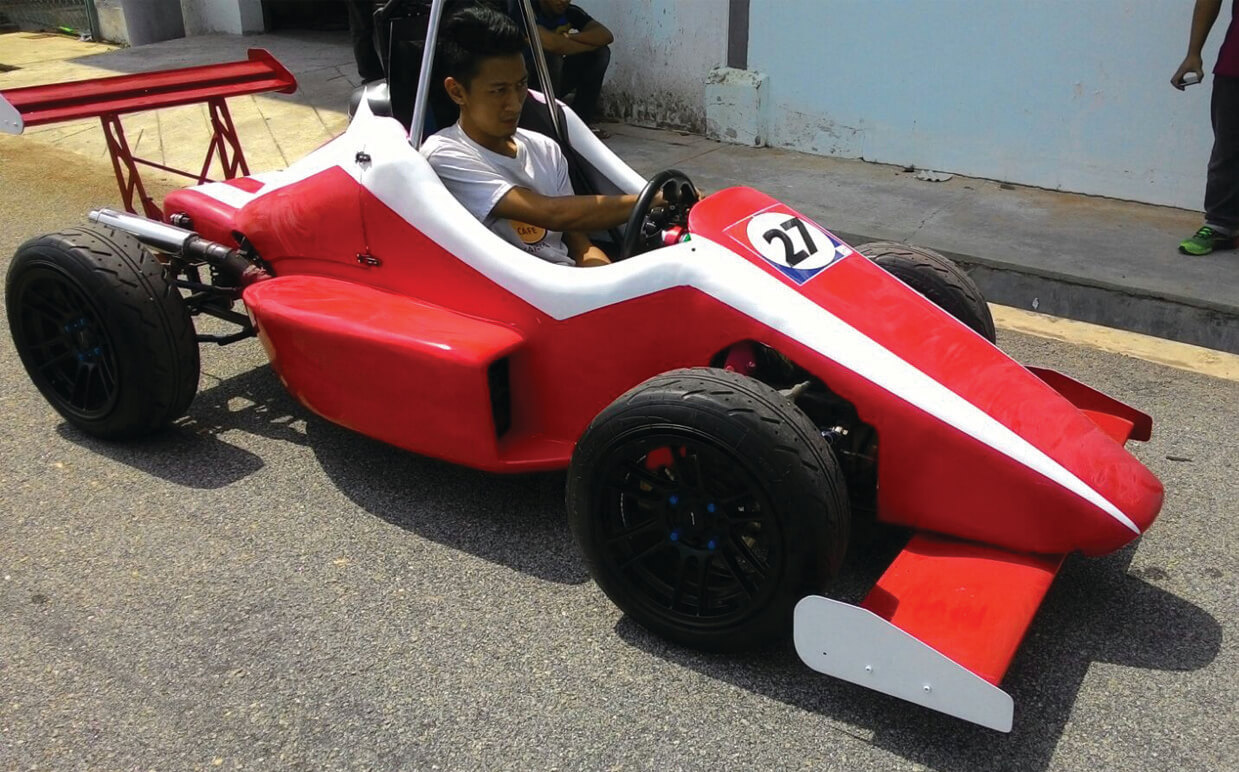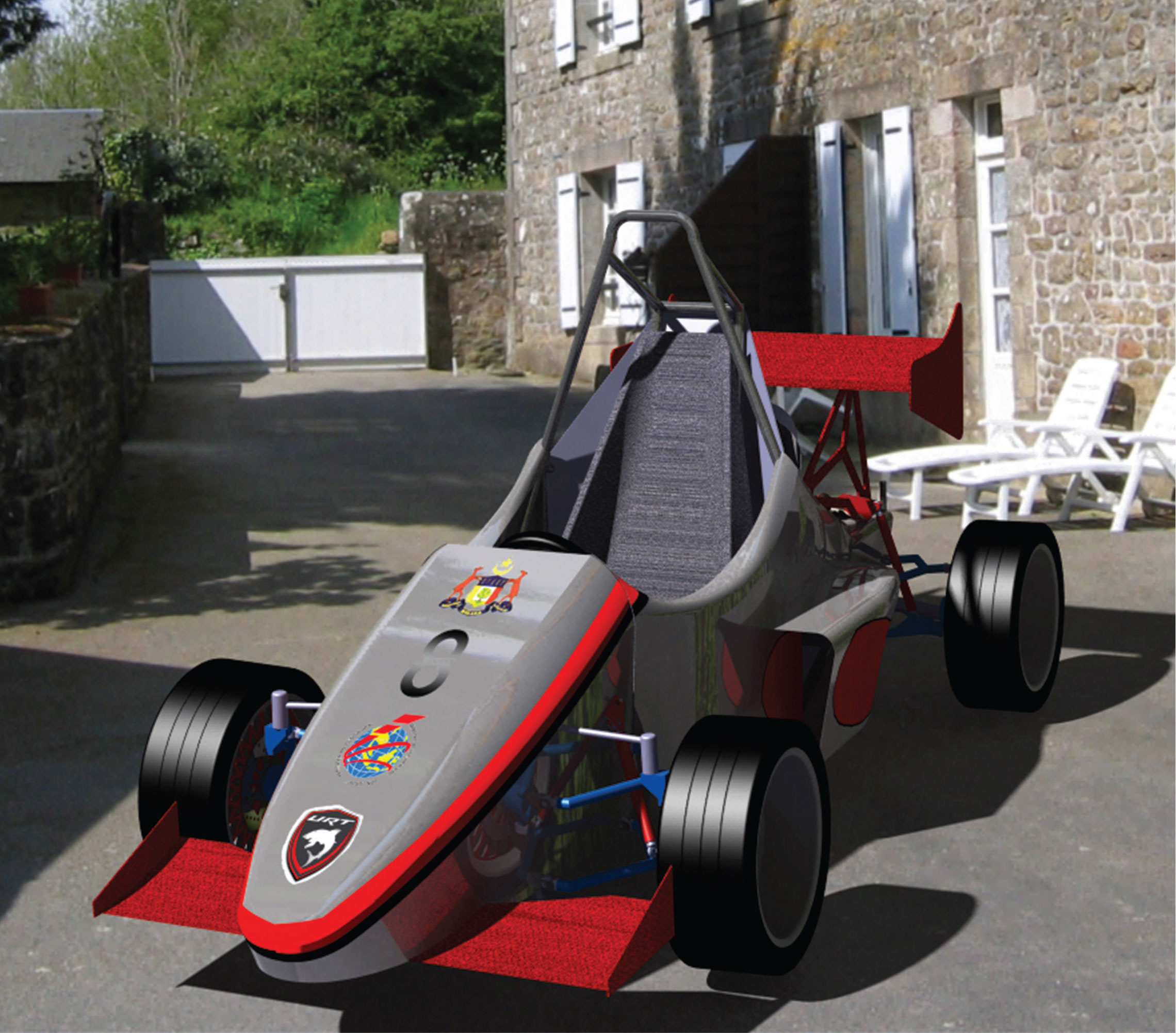TECHNICAL UNIVERSITY OF MELAKA MALAYSIA
Technical University of Melaka Malaysia wants to ensure the success of its graduating students by providing training on industry-leading product development software.
EXCELLENCE THROUGH COMPETENCY
The founders of the Technical University of Melaka Malaysia (UTeM) have great ambitions for the students of the engineering and technical institution they established in 2000 – to provide them with the ability to promote scientific and critical thinking, innovative problem solving, and autonomy when making decisions. “Our students receive a multi-disciplinary education, which is the cornerstone of their successful contribution to society and their ability to meet the current and future needs of the industry,” said Prof. Ir. Dr. Mohd. Jailani Bin Mohd Nor, deputy vice chancellor, research and innovation at UTeM.
In addition to theoretical classroom training, UTeM students have various laboratories at their disposal where they can apply their knowledge in areas such as robotics, thermodynamics, manufacturing and chemistry. The school also organizes events to provide students with real-life exposure to product development. One of these events, Formula Varsity Malaysia (FV Malaysia), is a racing competition aimed at encouraging automotive engineering students’ creative thinking by applying what they have learned in the classroom.
“FV Malaysia was first organized by UTeM’s Faculty of Mechanical Engineering in 2006 and has since become a highly anticipated biannual event in the cursus of our future engineers,” Mohd Nor said. “Students are challenged to design, build and drive a formula-style racing car during a race in which multiple Malaysian universities compete.” As many as 50 teams enter the race with internal combustion engine cars and 30 in the electric vehicle category. “Pitting teams against one another brings out the best in students; everyone tries hard to be a winner. Formula Varsity is also a fun way for them to experience working on a project from A to Z. There are even prizes for first place winners.”
Every stage of automotive development is covered, from design and analysis to building and testing a prototype to manufacturing and assembling the components. “Students also test their project management and team building skills, both essential to working with others in the real world,” Prof. Datuk Dr. Shahrin Bin Sahib, vice chancellor, UTeM, said
UTeM students got a boost from Dassault Systèmes’ 3DEXPERIENCE® platform and its design and simulation applications to design and build their car. The entire experience helped them become proficient with the software and to hone their skills for the job market. “The Dassault Systèmes’ applications are widely used in the automotive industry, which is why at UTeM we put teaching our students how to use them among our priorities. Proficiency with these solutions increases their probability of employment. In fact, UTeM has one of the highest employment rates in Malaysia – up to 90% of our students are hired within the first six months after they graduate. This positive outlook motivates and gives them confidence when they look for work,” Mohd Nor said. “Moreover, many small and medium businesses do not necessarily want to invest in training new hires to use their software. Our students are prepared and it differentiates our school from other universities and UTeM students from other job seekers,” Dr. Shahrin Bin Sahib added.
Mawea Industries, Dassault Systèmes’ partner in Malaysia, implemented the 3DEXPERIENCE platform and its applications at UTeM. “We have a longstanding relationship with Mawea and Dassault Systèmes, and this has a lot of weight in an industry that counts on our ability to train Malaysia’s future engineering workforce,” said Syahrul Azwan Bin Sundi, lecturer at UTeM’s Faculty of Engineering Technology. “With their help, our staff became rapidly proficient with the platform’s applications.”
Using the 3DEXPERIENCE platform was an amazing experience for our students. It was an invaluable asset to this project as the UTeM team took first place in the electric vehicle static and dynamic event.
COLLABORATION HELPED OPTIMIZE THE DESIGN
The Formula Varsity team from UTeM used the 3DEXPERIENCE platform’s design application CATIA to model the car in 3D and to prepare the manufacturing phase for all the car’s components. “Students specializing in different disciplines – engine design, electrical systems, and body – were able to collaborate together on the digital mock up using the 3DEXPERIENCE platform’s collaborative technology,” Mohd Nor said. “The exchange between the different project members helped them put forth new ideas and to give one another advice, which helped iron out design issues and to optimize the car’s design.”
CATIA Composites Designer was specifically used for the car’s lightweight body. “It saved time to use a solution that incorporates composites manufacturing constraints in the design,” Syahrul Azwan Bin Sundi said.

FIRST-TIME-RIGHT MANUFACTURING WITH VIRTUAL SIMULATION
The students used the 3DEXPERIENCE digital manufacturing application DELMIA to perform virtual simulations and to model the production process, which helped them detect and correct manufacturing issues early. “Machining quality and performance improved and it helped gain time and money by avoiding expensive scrap and rework or damaging the tooling because of collisions due to production programming errors,” Mohd Nor said. The students also used simulation to virtually assemble the car’s components and ensure it would work right the first time before physically attempting to put it together. “We used the CATIA skills we acquired in school to virtually verify the feasibility of our design early in the development process,” said Naquiddin Bin Nasirin, third-year mechanical engineering technology student. “We then reused CATIA to adjust our design before proceeding to manufacture.”
The car’s strength and resistance were tested using the 3DEXPERIENCE platform’s analysis and simulation technology. “We performed stress analyses and tested the car for impact to make sure it was safe to drive,” Bin Nasirin said. “Only after we were completely satisfied with the virtual simulation results did we proceed with manufacture.”
The driver’s comfort was an important consideration during the design process. “The 3DEXPERIENCE platform’s simulation capabilities gave the students a real lesson in ergonomics,” Syahrul Azwan Bin Sundi said. “It’s difficult for a lecturer to explain with words what ergonomics is all about. But with virtual simulation and the use of manikins, the students can actually see what the driver experiences and can adjust their designs accordingly.”
With the Formula Varsity competition, UTeM transformed a fun event into a real learning experience that helped its students gain valuable automotive design know-how. “As professors, we look back at this experience with pride because our students were in the driver’s seat; they did all the work,” Syahrul Azwan Bin Sundi said. “We provided them with the fundamentals in class but the project was entirely their doing. They demonstrated real teamwork, from the planning and design stages to production. Using the 3DEXPERIENCE platform was an amazing experience for our students. It was an invaluable asset to this project as the UTeM team took first place in the electric vehicle static and dynamic event.”
Focus on Mawea Industries
MAWEA Industries empowers business innovations with hardware and software solutions especially for the aerospace and automotive industries. The company consists of a group of experienced and passionate engineers who are capable of delivering excellent results in design and manufacturing projects. MAWEA Industries supports the entire product development process from the beginning with technical know-how and consulting services. Since 2004, MAWEA Industries has been awarded Dassault Systèmes Education Partner status.
For more information: www.mawea.com.my

